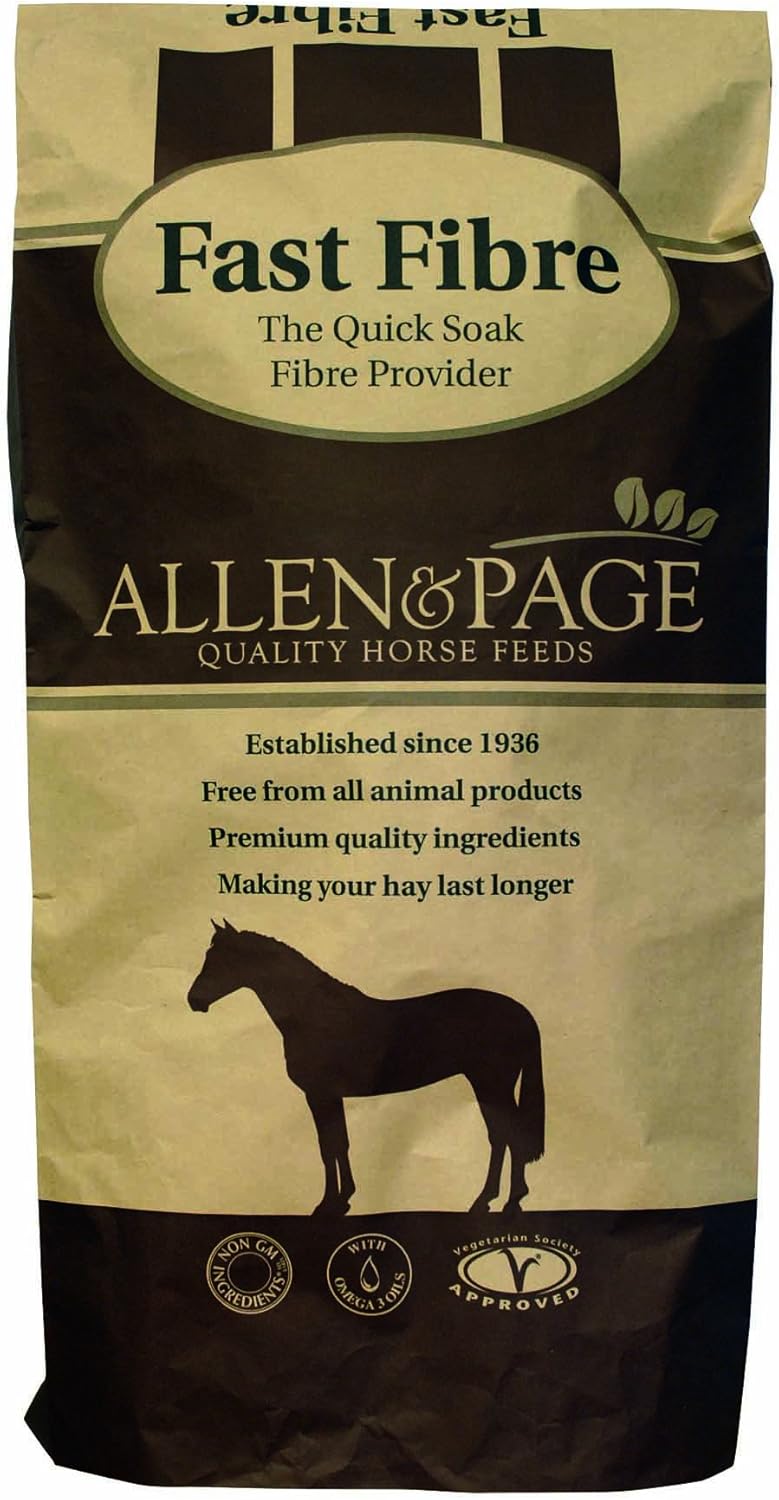
Allen & Page Fast Fibre Horse Feed, 20 kg
FREE Shipping
Allen & Page Fast Fibre Horse Feed, 20 kg
- Brand: Unbranded

Description
Your horse appears uncomfortable and may shift his weight from one foot to another. The characteristic ‘laminitic stance’ with forelegs stretched forwards and weight shifted onto the heels to relieve pressure from the toes is commonly seen.
Bear in mind that not all laminitics are the typical overweight ponies we usually associate with the condition; some are poor doers or hard working horses that require higher calorie/energy diets. Ingredients like beet pulp and alfalfa are not only high in fibre but they are also an excellent calorie source, containing as much energy as many cereal grains but without the high starch content. Oil is also an excellent source of extra calories that is safe for laminitics; in particular, a linseed meal or oil would be a useful addition to the diet for any horse requiring an energy boost. Linseed is high in omega 3 oils and well known for its excellent anti-inflammatory properties within the body. Stabling him on a deep bed of shavings to provide support for the hooves. Do not use straw as your horse may eat it. An excellent way of boosting a horse or pony’s water intake, which is especially important for veterans who can be reluctant to drink enough water, particularly in winter
Latest News
Laminitis isn’t just a spring and summer problem it can occur in the winter too, particularly when horses eat frosted grass. Avoid turnout on days when it is very cold but bright and sunny as the fructan (sugar) content of the grass will be at its highest. Wait until the temperature has risen and the frost has melted before turning out. Cereal & molasses free, high in fibre & low in starch & sugar making it ideal for good doers and those in light work. Toxins – e.g. as a result of bacteria released during illness such as retained placenta, colic, or an infection in the body
Laminitis is recognised as one of the most common and crippling diseases affecting horses, ponies and donkeys. Laminitis occurs as a result of inflammation of the sensitive layers (laminae) in the hoof. The laminae attach the pedal bone to the hoof wall and any inflammation causes pain and lameness. In severe cases the laminae can fail completely, leaving the pedal bone detached from the hoof wall and able to rotate within the hoof capsule or sink downwards and protrude through the sole. Excessive intakes of lush or frosted grass, molassed feed and cereal grains that leads to an overload of soluble carbohydrate in the hindgut
Your horse appears lame and may be reluctant to move, making only small, careful, ‘pottery’ strides. This may be more apparent on a turn or on hard surfaces. What causes laminitis continues to be an area of huge research. It has become evident in recent years that although the over consumption of grass or feed high in starch or sugar is still commonly associated with horses developing laminitis, up to 90% of cases have an underlying hormonal cause. Animals that suffer from problems such as: Cushing’s disease (also known as PPID), Equine Metabolic Syndrome (EMS) and Insulin Resistance (IR) will have an increased risk of developing laminitis. Weighing & EID Agriculture Tech AG TECH Handling Equipment Herd Monitoring Grassland Tech Weighing Equipment Perfect for senior horses with poor teeth, especially those who have difficulty chewing long fibre.
- Fruugo ID: 258392218-563234582
- EAN: 764486781913
-
Sold by: Fruugo
